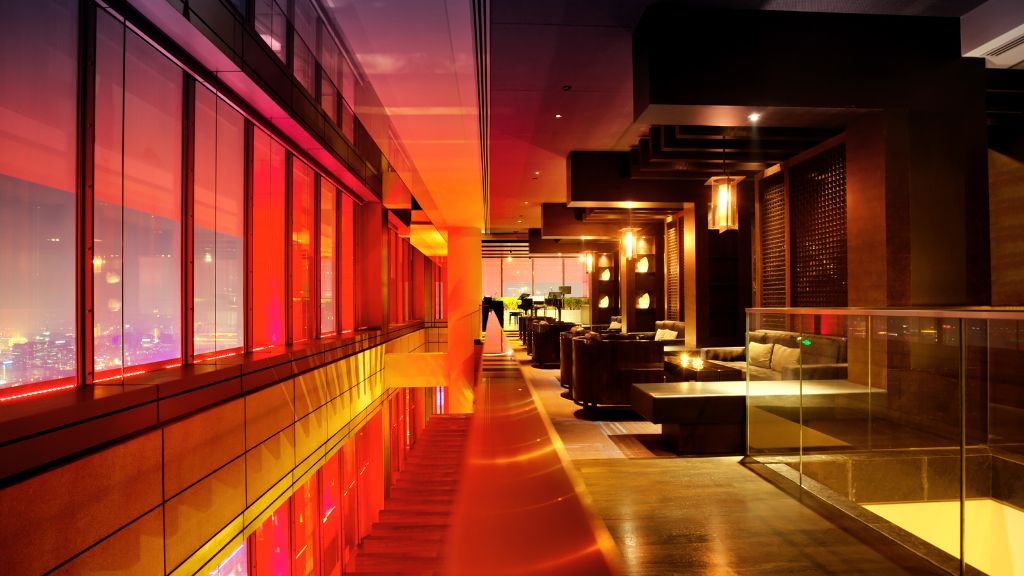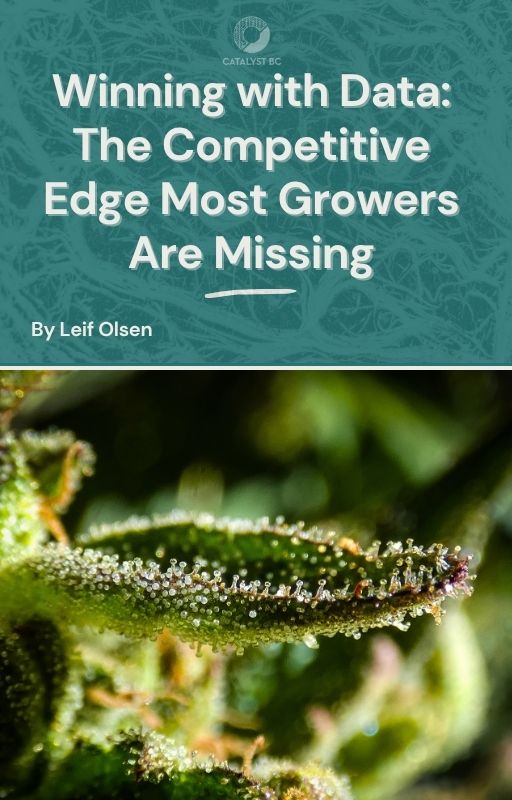Estimated reading time: 6 minutes
Table of contents
Cliff Notes: DC Cannabis Lounge Vs. Private Cannabis Club Explained
Objective:
Build a strong cannabis brand using effective branding elements and a comprehensive marketing strategy that includes digital strategies, influencer partnerships, and consumer education.
Key Components:
- Retail cannabis sales are illegal in DC due to federal law; no public cannabis lounge licenses currently exist.
- Public consumption of cannabis is prohibited and subject to fines under DC law.
- DC considered private cannabis clubs in 2016 but found legalization premature; no formal path to lounge licensing exists yet.
- Only legal consumption areas are private residences or medical-use facilities.
- Prospective entrepreneurs must follow a 501(c)(7) private social club model with strict membership, zoning, and non-profit compliance.
For guidance, Catalyst BC cannabis consultants help navigate zoning, regulations, and prepare for future licensing. Our team provides end-to-end consulting, legal readiness assessments, and strategic planning for cannabis hospitality ventures in DC. Learn about all of our cannabis consulting services or Book a Complimentary Consultation today.

Overview
In the District of Columbia, cannabis use and possession by adults 21+ is broadly decriminalized, but retail sales remain illegal due to federal restrictions. Unlike jurisdictions with regulated adult-use sales, D.C. has no state-sanctioned retail market, which means there is no official license for public consumption lounges. Public consumption of marijuana is explicitly prohibited under D.C. law (fine up to $100) and the city has only considered private club models.
In 2016 Mayor Bowser convened a Marijuana Private Club Task Force to study “private cannabis clubs,” but the panel concluded that “advocating for Marijuana Private Clubs at this time would be premature”. The Task Force noted federal illegality and lack of regulation as barriers. In short, no public “cannabis lounge” permit exists in D.C.; entrepreneurs must focus on private membership events or await legislative change.
Entrepreneurs should nonetheless stay aware of potential regulatory changes. If D.C. ever authorizes on-site consumption, applicants will need to navigate both ABCA (Alcoholic Beverage) rules and DC Department of Health regulations, and secure the host location.
For now, the only lawful consumption is private (e.g. in homes) or at approved medical facilities. Public or “open” lounges would violate both the Clean Air Act’s anti-smoking rules and D.C. restrictions. Prospective operators should plan steps like: confirming local zoning will allow cannabis-friendly private clubs, developing strict membership policies (e.g. DC residency, no intoxicated entry), and preparing to comply with IRS non-profit requirements (since private clubs must be 501(c)(7) social clubs under DC law).
Key Compliance Risks
Operating any public cannabis lounge in D.C. today would expose you to enforcement under the Controlled Substances Act or DC’s strict public consumption laws. Until an enabling law is passed, the safest path is a members-only club model analogous to Washington, DC’s private social clubs (with limits on membership, guest logging, and no cannabis sales on-site). Our cannabis consultants can help ensure your plan fits within current law and prepares for a future licensing program.
Why Hire a Cannabis Consultant?
Contact Catalyst BC’s cannabis consultants to assess your DC operation plan. Our experts will advise on legal trends and licensing pathways once DC authorizes any cannabis lounges.
Learn about all of our cannabis consulting services or Book a Complimentary Consultation today.
Washington DC Cannabis Lounge FAQs
No – DC has no regulatory license for public consumption. Only private membership clubs (no public sales) are possible under a 501(c)(7) model.
Clubs must be non-profit, membership-based, have Washington DC members, and obtain DC Alcoholic Beverage regs (no alcohol service).
Private club law recommends limiting members to DC residents, although it’s not explicitly prohibited, this avoids legal issues.
No – public consumption is illegal everywhere in DC; no permits allow on-site use in hospitality venues.
Since there are no dispensaries, this scenario is unlikely until Congress allows sales and an enabling law passes.
All public places are covered by DC’s Clean Air Act and pot ban – no exceptions for outdoor patios or cafes.
Monitor DC Council actions and DC Department of Health announcements. Legislative changes (via Initiative or Council act) would be publicized.
Yes. Even if DC allowed lounges, federal law still bans marijuana. That’s why past DC regulators urged caution.
Not yet. Some have proposed allowing cannabis on private hotel terraces or cruise ships, but nothing official is in place.
Yes – District of Columbia cannabis lounge expertise can guide you on legal strategies and readiness for future licensing.
Navigating the Washington DC cannabis lounge space is complex—one misstep can jeopardize your future. A specialized Cannabis Consultant brings deep regulatory knowledge, operational best practices, and hands-on project management.
From initial concept and licensing to grand opening and ongoing compliance, Catalyst BC’s end-to-end Washington DC Cannabis Consulting services ensure you launch faster, stay compliant, and maximize profitability.
Additional Resources
Free eBooks For Cannabis Business Success
Latest Articles
- Missouri Cannabis Licensing & Business Opportunities 2026Missouri has established itself as the premier success story for cannabis in the Midwest, evolving from a standard medical regime to a high-volume adult-use market that exceeded $1.52 billion in annual sales in 2025. As the market enters the 2026–2027 biennium, the landscape is shifting from rapid expansion toward operational maturation and specialized entry.
- North Carolina Cannabis Licensing & Business Opportunities 2026North Carolina remains one of the final significant jurisdictions in the United States without a comprehensive medical or adult-use cannabis program. However, the 2026–2027 biennium is projected to be the most consequential period in the state’s cannabis history. Driven by the formation of the North Carolina Advisory Council on Cannabis and an impending federal “hemp cliff,” the state is moving from a period of passive prohibition toward a structured, albeit highly restrictive, regulatory framework.
- Nebraska Cannabis Licensing & Business Opportunities 2026Nebraska is entering the 2026–2027 biennium at a historic crossroads. Following the 71% voter approval of Initiatives 437 and 438 in late 2024—the largest margin for a medical cannabis initiative in U.S. history—the state is currently standing up its first regulated medical infrastructure.
- Florida Cannabis Licensing & Business Opportunities 2026Florida represents the most capital-intensive and professionally structured cannabis market in the nation. As of 2026, the state is at a crossroads: it is both expanding its mature medical program and preparing for a potential constitutional shift toward universal adult-use access. On November 3, 2026, Florida voters will decide on the Marijuana Legalization Initiative (Amendment 3). Passing this requires a 60% supermajority—a high threshold, but one that polls suggest is within reach.
- Virginia Cannabis Licensing & Business Opportunities 2026As Virginia transitions from its current “possession-only” model toward a fully regulated retail market, the 2026–2027 biennium represents a once-in-a-generation window for market entry. Unlike the vertically integrated “medical-only” regimes of the past, Virginia’s upcoming framework focuses on decentralization, specifically architected to favor small Virginia-based operators over large multi-state corporations.
- Minnesota Cannabis Licensing & Business Opportunities 2026Minnesota is currently undergoing a transformative shift in its cannabis landscape, moving from a semi-regulated hemp-derived market toward a fully comprehensive adult-use framework. Overseen by the Office of Cannabis Management (OCM), the 2026–2027 biennium represents the critical “enforcement phase” where temporary registrations sunset and permanent, merit-based licenses define the market’s long-term leaders.











